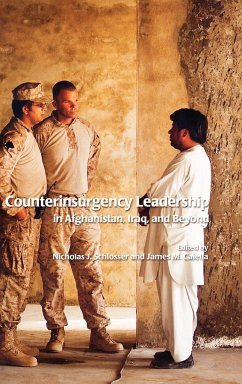
Al-Qaida. the Tribes. and the Government
Lessons and Prospects for Iraq's Unstable Triangle (Middle East Studies Occasional Papers Number Two)
Versandkostenfrei!
Versandfertig in 1-2 Wochen
24,99 €
inkl. MwSt.

PAYBACK Punkte
12 °P sammeln!
Dealing with tribal systems has posed a continuing challenge to Al-Qaida as it operates in the Middle East and Africa, where a tribal environment is still an integral part of society in many of the countries. How Al-Qaida views and manages the tribal system within its individual areas of operation in many cases can mean the difference between success and failure, and the jihadist movement cannot ignore this issue, which has been a major factor affecting its prospects, especially in Iraq. This study examines Al-Qaida's experience dealing with the tribes in Iraq in terms of a triangular relation...
Dealing with tribal systems has posed a continuing challenge to Al-Qaida as it operates in the Middle East and Africa, where a tribal environment is still an integral part of society in many of the countries. How Al-Qaida views and manages the tribal system within its individual areas of operation in many cases can mean the difference between success and failure, and the jihadist movement cannot ignore this issue, which has been a major factor affecting its prospects, especially in Iraq. This study examines Al-Qaida's experience dealing with the tribes in Iraq in terms of a triangular relationship involving the Sunni tribes, Al-Qaida, and the government (or the United States as the governing authority in the initial stages), with latter two entities often competing for the allegiance of the tribes.












